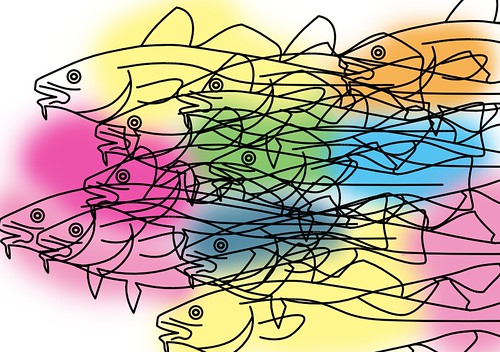 (from a discussion thread in SOCNET)
(from a discussion thread in SOCNET)
Mullins, Nicholas. Theories and Theory Groups in Contemporary American Sociology. New York: Harper and Row, 1973. Key chapter pre INSNA on early social network analysis.Wolfe, Alvin W. 1978. The Rise of Network Thinking in Anthropology. Social Networks 1(1978):53-64.
Barry Wellman, “Structural Analysis: From Method and Metaphor to Theory and Substance.” Pp. 19-61 in Social Structures: A Network Approach, edited by Barry Wellman and S.D. Berkowitz. Cambridge: Cambridge University Press, 1988.Winship, C. (1988). Thoughts about roles and relations: An old document revisited. Social Networks, 10, 209-231. (insights into the early development of blockmodelling)
John Scott (1991) – Social Network analysis: A handbook (2002) – chapter 2Freeman, Linton C. (1992). Social Networks and the Structure Experiment. In L. C. Freeman, D. R. White & A. K. Romney (Eds.), Research Methods in Social Network Analysis (pp. 11-40). New Brunswick, NJ: Transaction Publishers.Hummon, N. and K. Carley. 1993. Social networks as normal science. Social Networks 15:71-106Wasserman and Faust (1994). Social Network Analysis – Methods and Applications. Cambridge University PressJ.C. Johnson. “Anthropological Contributions to the Study of Social Networks: A Review.” In (S. Wasserman and J. Galaskiowicz, eds.) Advances in Social Network Analysis: Research in the Social and Behavioral Sciences. Sage: Newbury Park. 1994.Linton Freeman and Barry Wellman. “A Note on the Ancestral Toronto Home of Social Network Analysis.” Connections 18 (November, 1996): 15-19.Frank, K. A. (1998). “The Social Context of Schooling: Quantitative Methods” Review of Research in Education, Vol, 23, chapter 5, pages 171-216.
“The Network Revolution” chapter in Rainie-Wellman Networked: The New Social Operating System. MIT Press, 2011.
Charles Kadushin : Making Connections: Network Theory, Concepts and Findings, Oxford University Press, will be out in 2011.
(This can be expanded by you, just email me at spp at thisISforSPAM sixhat.net or use the contact form)

 (from a discussion thread in SOCNET)
(from a discussion thread in SOCNET)